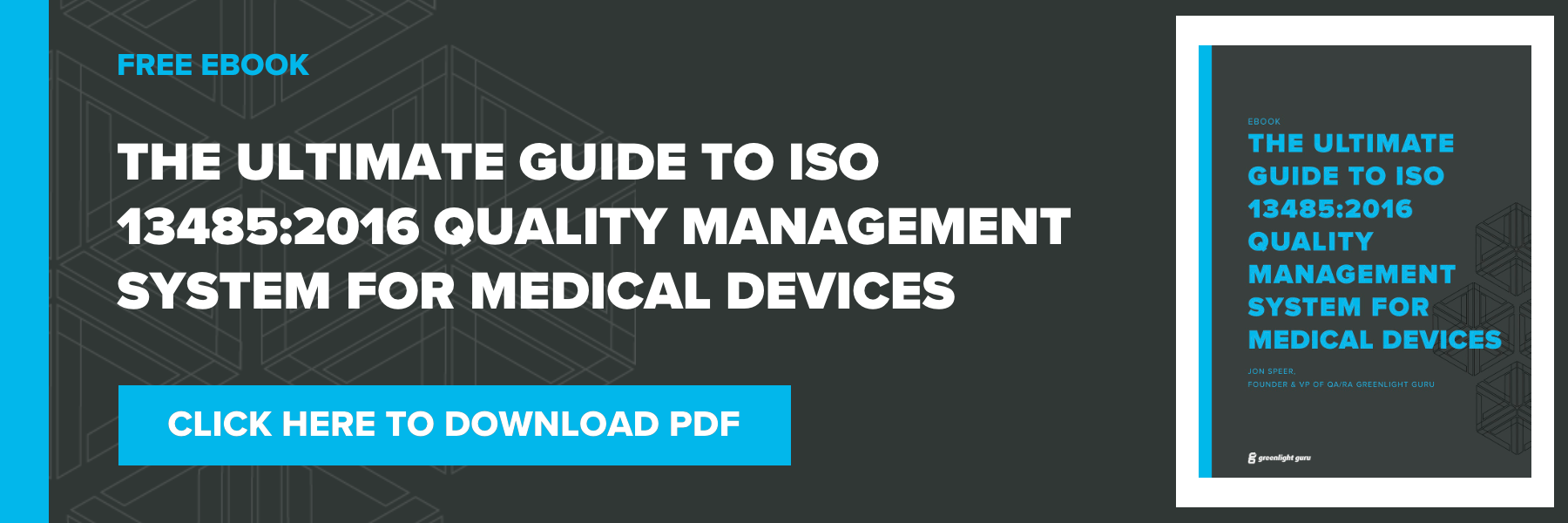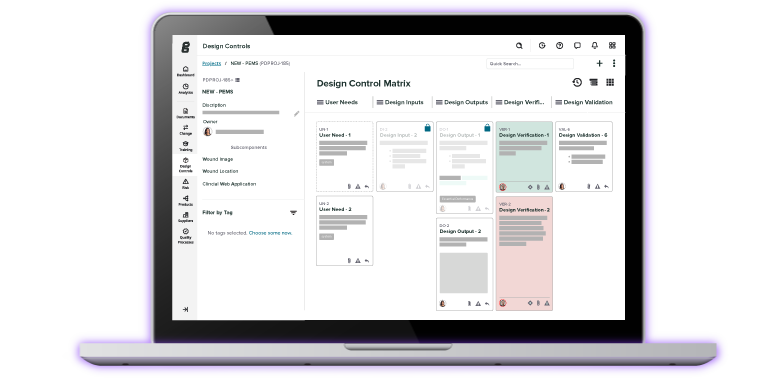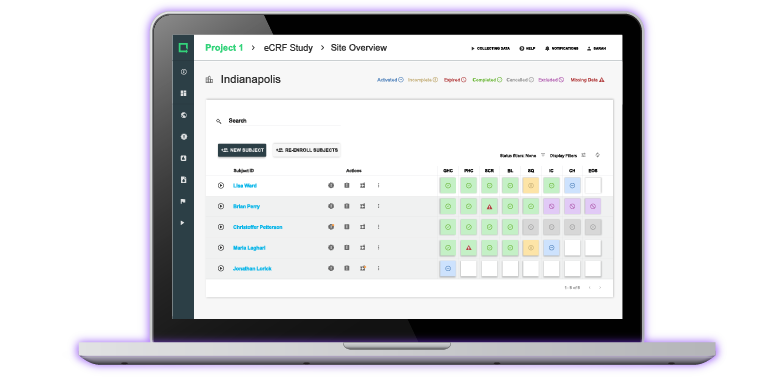How MEDDEV 2.7.1 Rev 4 Affects Medical Device Manufacturers

Up until the latest revision of MEDDEV 2.7.1 was published on June 29th, 2016, clinical data provided by medical device companies was being closely monitored by Notified Bodies and Competent Authorities throughout Europe. The updates to MEDDEV 2.7.1 in its fourth revision constitute a full rewrite of the document that sees it expand from 46 pages in the 3rd version to 65 pages in this one.
Due to its status as a guidance document, not a legislative one, some medical device companies have been surprised by the fact that the new document contains no provisions for a transition period when it comes to compliance - as far as we can tell, the requirements laid out in MEDDEV 2.7.1 Rev 4 are effective immediately. While you won't be receiving a fine or citation for non-compliance, medical device companies do risk losing their CE marking/certification through routine audits now that the requirements have changed.
The good news is that although the entire document has been rewritten, many requirements remain the same. In this article, we'll give an overview of what the new changes are in MEDDEV 2.7/1 revision 4 and how those changes affect your medical device company when it comes to maintaining European Compliance and keeping your CE marking.
MEDDEV 2.7.1 Rev 4 Requires New Qualifications for CLinical Evaluation Report Authors and Evaluators
The new revision of MEDDEV 2.7.1 gives detailed requirements for who should perform clinical evaluations for new medical devices. Previous versions indicated that a clinical evaluation should be conducted by a suitably qualified individual or team, but this guideline has been updated with added specificity for MEDDEV 2.7.1 revision 4.
Experts who conduct clinical trials are now required to have either a degree from higher education in the respective field and 5 years of documented professional experience, or at least 10 years of documented professional experience if a degree is not required for the given task. The document acknowledges that there may be instances where the experience of the evaluator is different or less, but requires this to be duly acknowledged and justified when it occurs.
Regardless of education or experience, general requirements for an effective clinical evaluator include proficiency in research methodology, information management, regulatory requirements and medical writing.
MEDDEV 2.7.1 REV 4 Includes New Guidelines for Notified Bodies on Device Equivalency
Clinical evaluations are the responsibility of the manufacturer and the clinical evaluation report is an element of the technical documentation of a medical device. One of the most important new changes in MEDDEV 2.7.1 rev 4 is the way in which notified bodies treat clinical evaluations that attempt to establish equivalency between the medical device and another device already available.
The establishment of equivalency between medical devices can allow clinical data from one device to be used in establishing the compliance with another device. To achieve this, the report author or evaluator must show that the new device is similar to the equivalent device in its clinical applications and technical specifications. The device must also be comprised of the same materials, and be used in contact with the same human tissues and body fluids.
Notified bodies are now directed to more rigorously analyze the clinical data presented from an equivalent device as part of a clinical evaluation, as well as to challenge the ability of manufacturers to access data that establishes equivalence. When a manufacturer claims that their device is equivalent to an existing one, that firm must be able to show access to clinical, technical, and biological data on the equivalent device that supports the claim.
These more stringent requirements may make it difficult or impossible to establish device equivalency when the necessary data is unavailable.
MEDDEV 2.7.1 Guidance on Frequency of Updates to Clinical Evaluation Reports
Most regulations and guidance on medical devices indicate that clinical evaluations should be updated on a regular basis, and that the required frequency of updates is dependent on the risks associated with using the devices: higher-risk devices should be assessed more frequently than lower-risk devices.
MEDDEV 2.7.1 Revision 4 clarifies previous guidelines on this frequency by specifying that clinical evaluation updates should be conducted annually for high-risk devices, and every 2-5 years for other devices, depending on the associated risks.
MEDDEV 2.7.1 Clarifies When Clinical Trials Should Be Conducted
The purpose of a clinical trial is to collect evidence that demonstrates the conformity of a device to the Essential Requirements. This is done through evaluation methods that assess the performance of the device in a clinical setting - in the hands of the intended user, being operated according to specifications provided by the manufacturer.
The latest revision of MEDDEV 2.7.1 further clarifies under what conditions clinical trials should be conducted. The need for clinical investigations depends on whether the existing data on the medical device is sufficient to address the benefit/risk profile, claims, and side-effects in order to comply with the Essential Requirements. Implants and high-risk devices, especially those that are using new, minimally-tested technologies, are most likely to require clinical investigation.
Other indicators that your medical device may require clinical investigation include:
- New, untested design features
- New intended purposes or target populations
- New types of users
- Seriousness of direct or indirect risks
- Contact between the device and mucosal membranes, or other invasive aspects
- Increasing duration of use or number of re-applications
- Incorporation of medicinal substances
MEDDEV 2.7.1 Rev 4 Adds "Stage Zero" to Clinical Evaluation Plan
While previous versions of MEDDEV 2.7.1 recommended a 4-step process for conducting clinical trials, the latest revision adds a "stage zero", meant as a planning stage where the scope of the clinical evaluation will be established.
Manufacturers are expected to document a plan for the clinical trial, including what important information must be gleaned to establish either conformity or equivalence with a conforming device, how the information will be garnered, and what statistical methods will be used to evaluate it.
Final Thoughts
While it may seem alarming that a comprehensive re-write was conducted on MEDDEV 2.7.1 with no transition period mandated, it should now be clear that the changes and updates contained in revision 4 are relatively minor. The added length of the document is primarily due to the added clarity of this version compared to its predecessors.
Rather than facing a swath of new guidelines, medical device companies should be pleased that MEDDEV 2.7.1 revision 4 makes it much easier to achieve compliance with Essential Requirements by clarifying and demystifying the guidelines for clinical evaluations for the European marketplace.
Jon Speer is a medical device expert with over 20 years of industry experience. Jon knows the best medical device companies in the world use quality as an accelerator. That's why he created Greenlight Guru to help companies move beyond compliance to True Quality.








